Fairy Tales Worksheets Activities With Answers for Ages 3-7
51 filtered results
-
From - To
Discover a magical collection of Fairy Tales Worksheets and Activities designed specifically for children aged 3-7! This enchanting resource offers engaging exercises to spark creativity and enhance learning through beloved fairy tale themes. Our worksheets focus on key skills like reading comprehension, vocabulary building, and critical thinking, making them perfect for early learners. Each activity is complemented by answer keys to support parents and educators in guiding children effectively. With colorful illustrations and fun exercises, these worksheets will help instill a love for stories while promoting essential early literacy and cognitive skills. Unlock the magic of learning today!
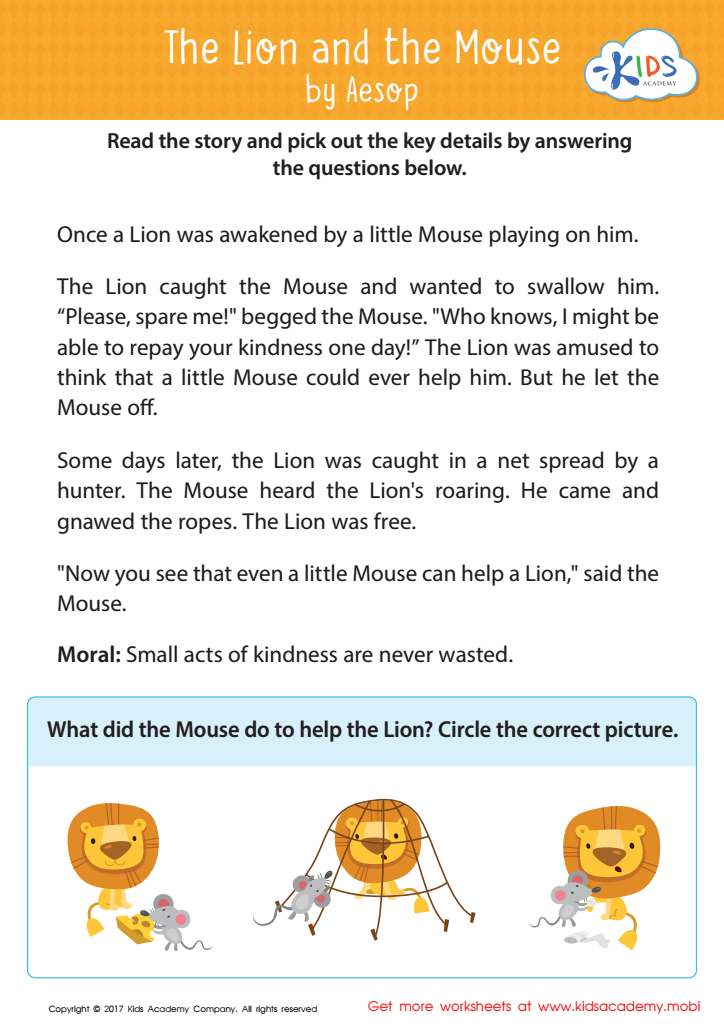

The Lion and The Mouse Sequencing Worksheet
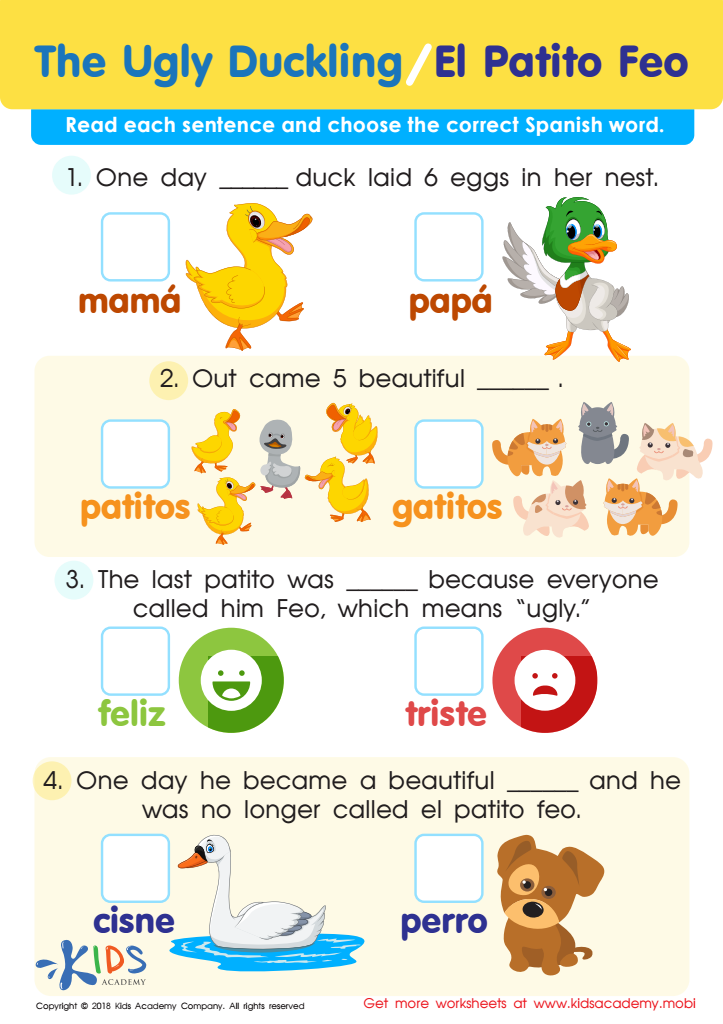

The Ugly Duckling / El Patito Feo Worksheet
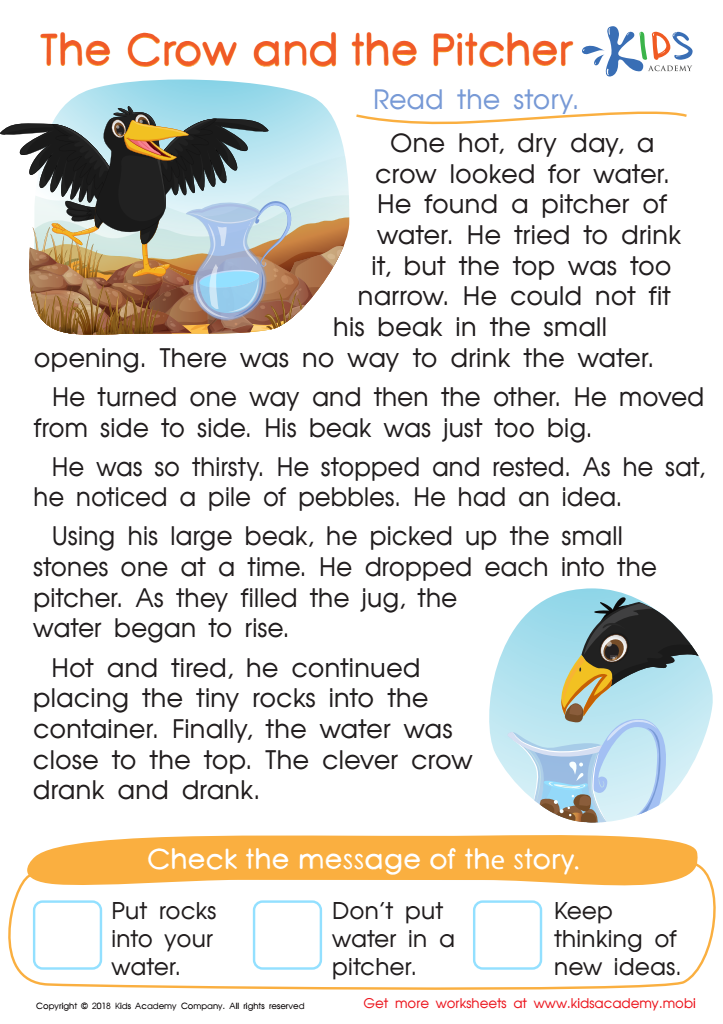

The Crow and the Pitcher Worksheet
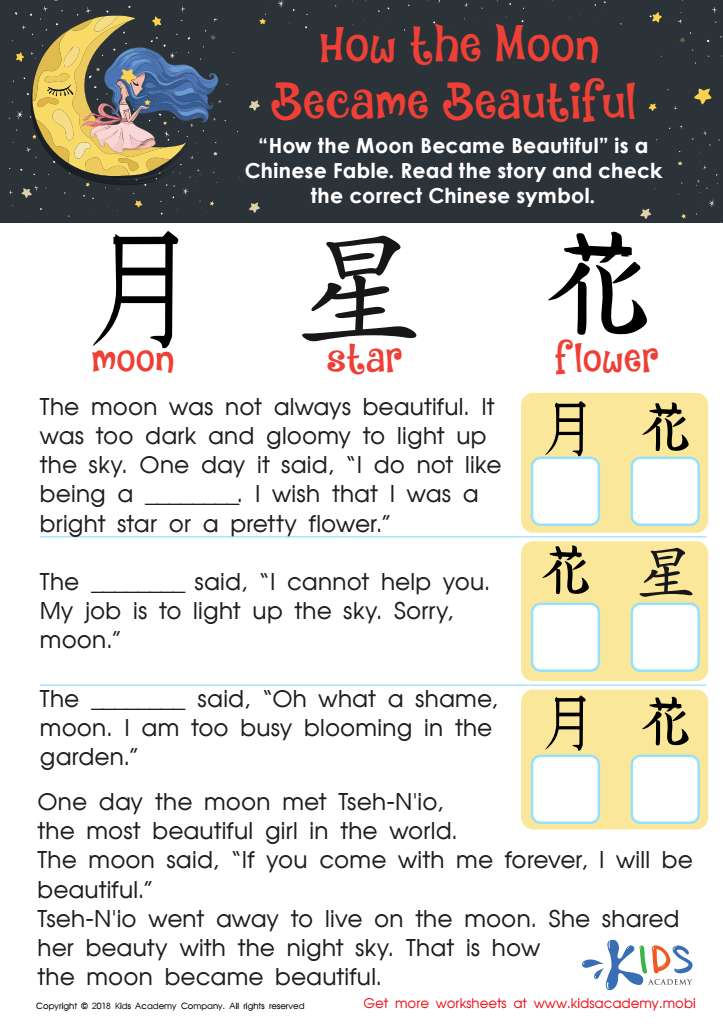

How the Moon Became Beautiful Worksheet
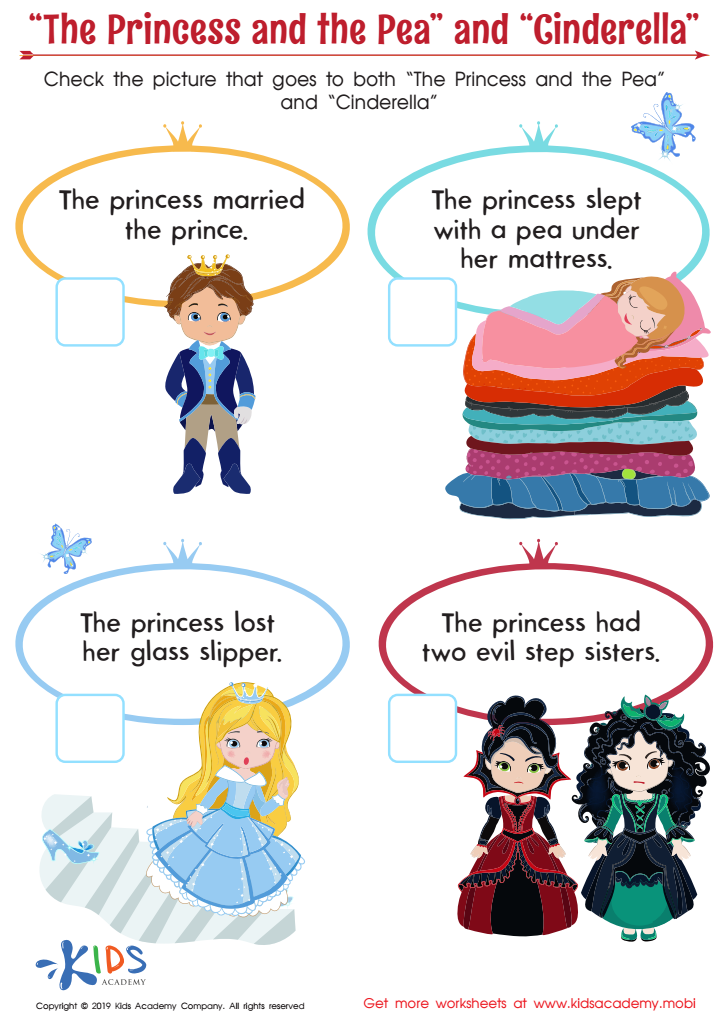

“The Princess and the Pea” and “Cinderella” Worksheet
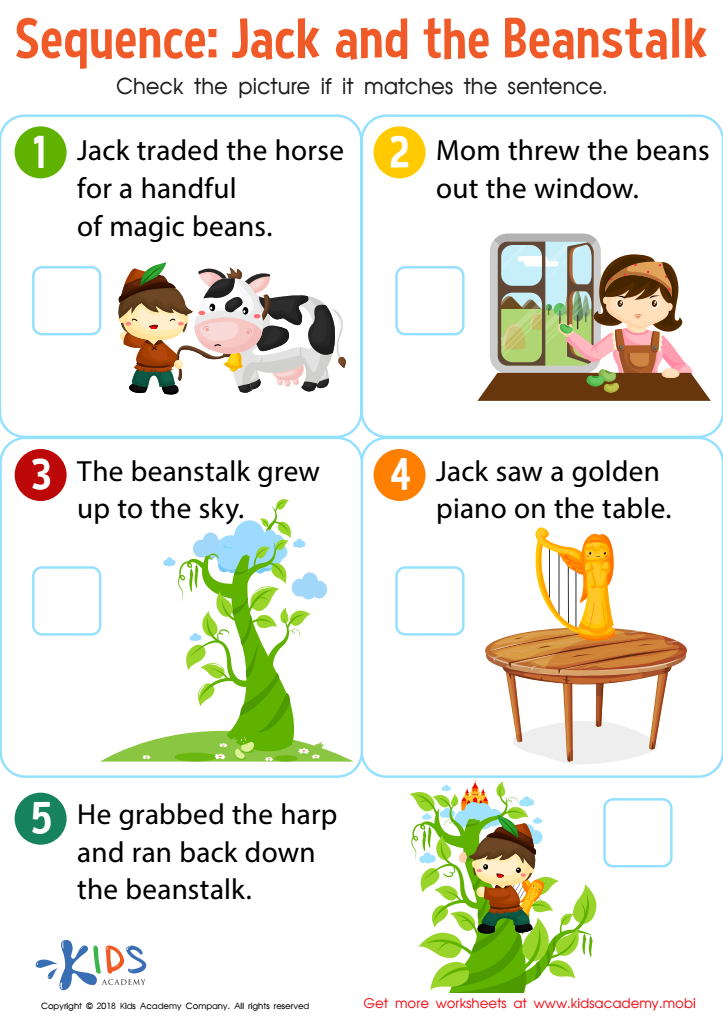

Sequence: Jack and The Beanstalk Worksheet
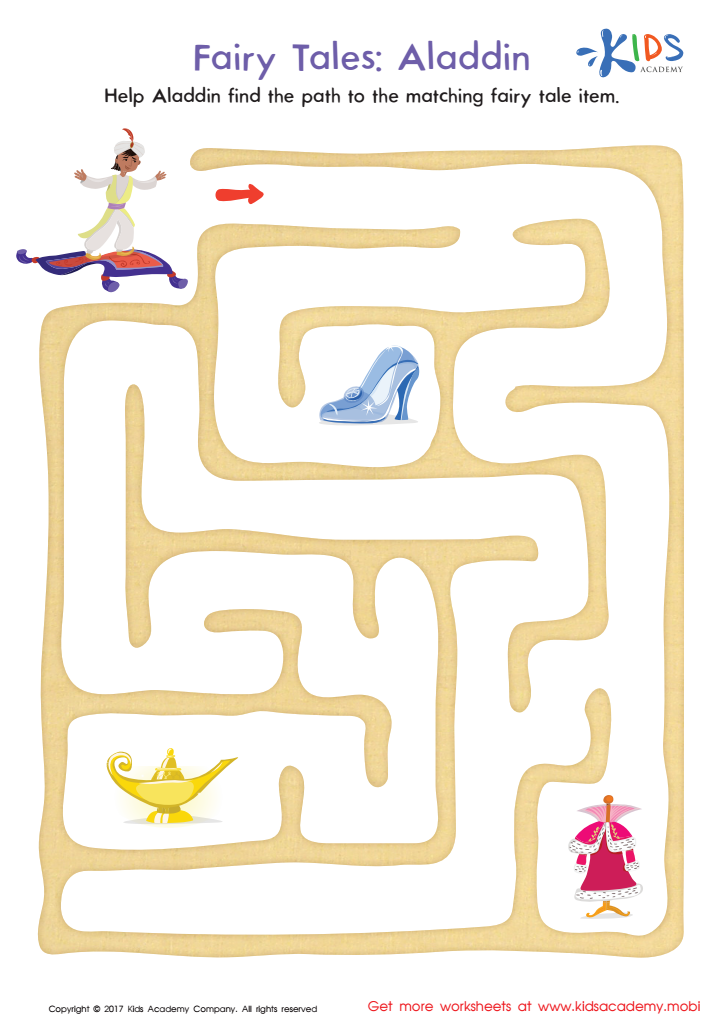

Fairy Tales Aladdin Printable
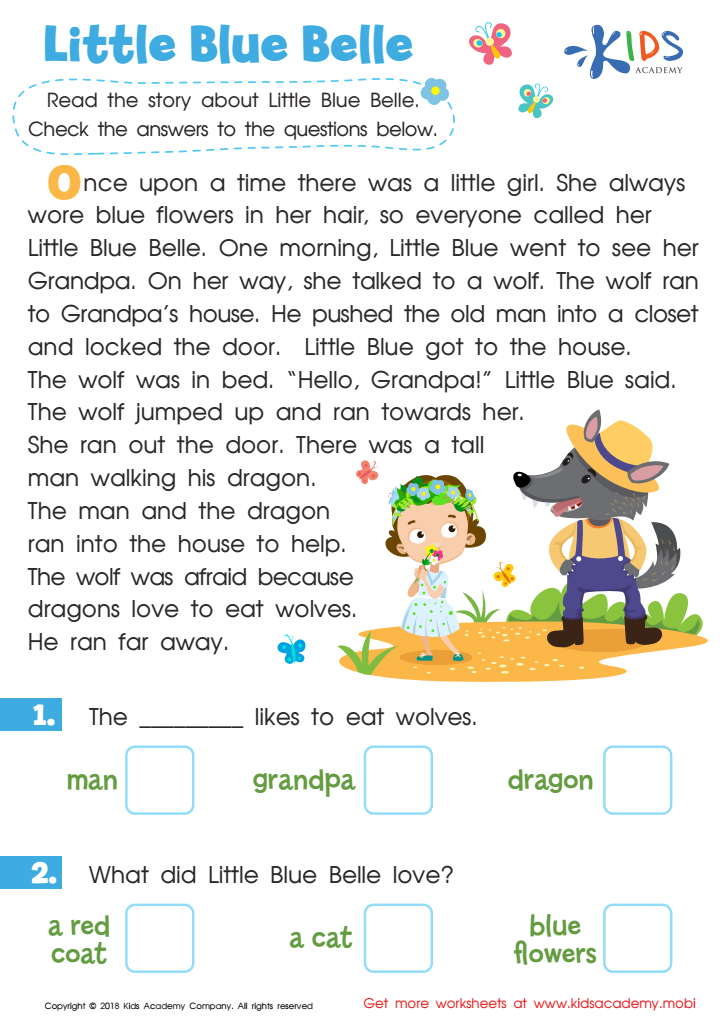

Little Blue Belle Worksheet
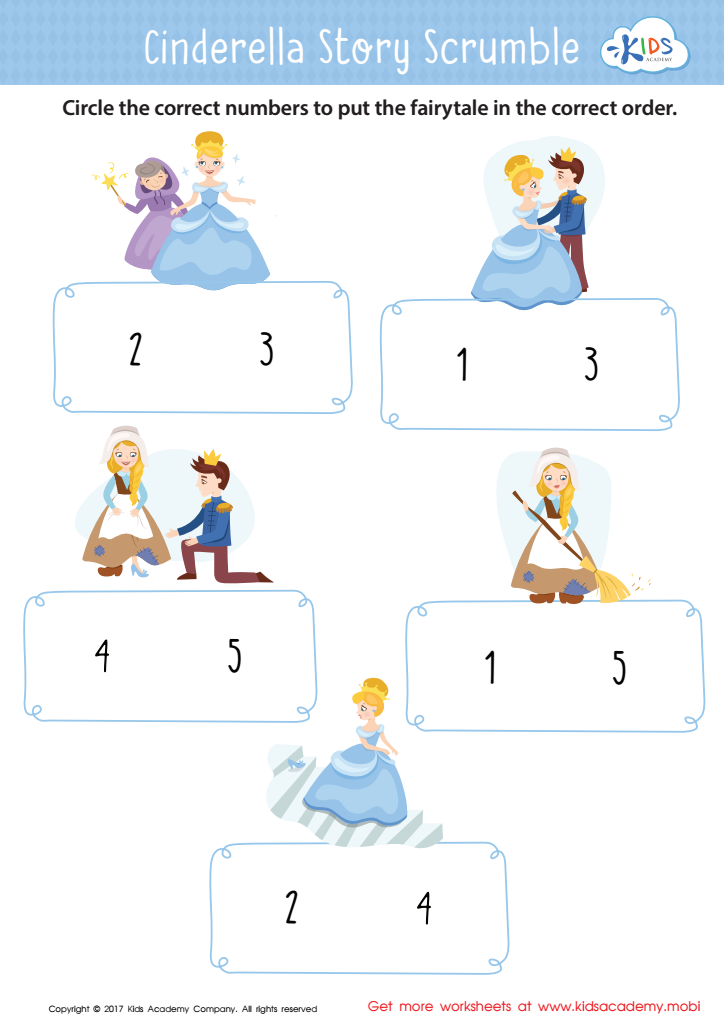

Cinderella Story Sequencing Worksheet
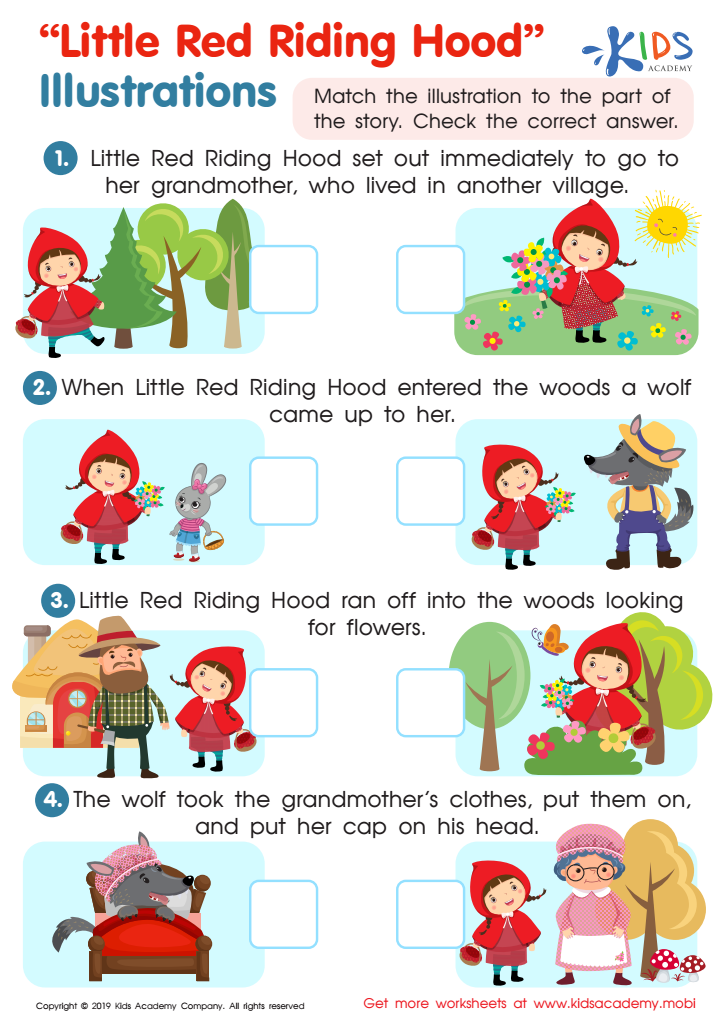

Little Red Riding Hood: Illustrations Worksheet
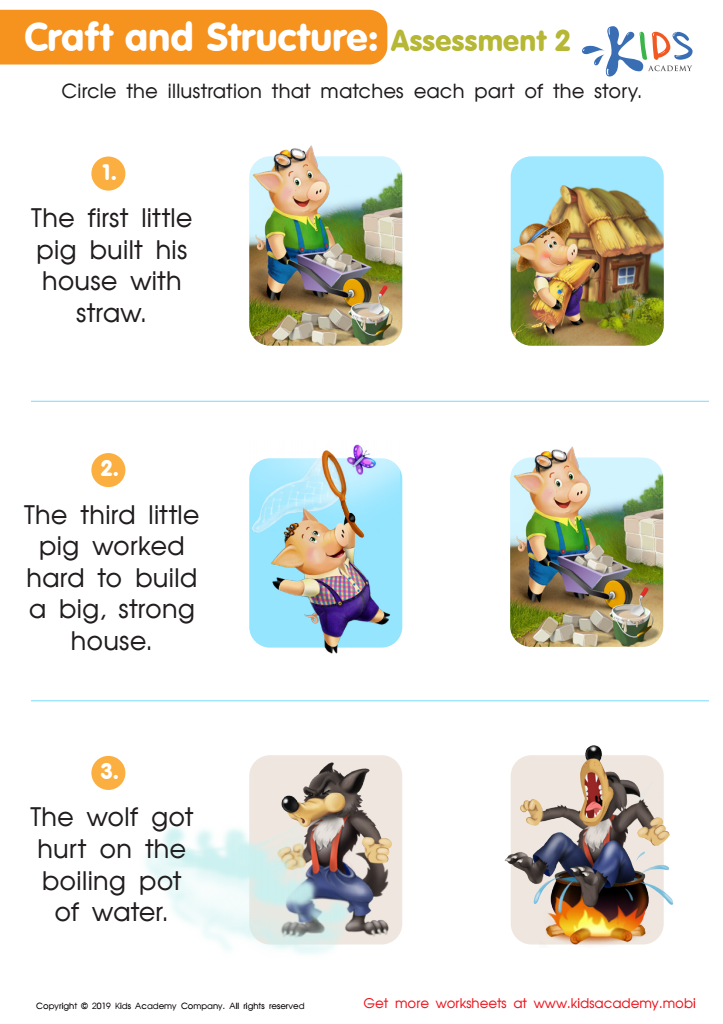

Craft and Structure: Assessment 2 Worksheet 2
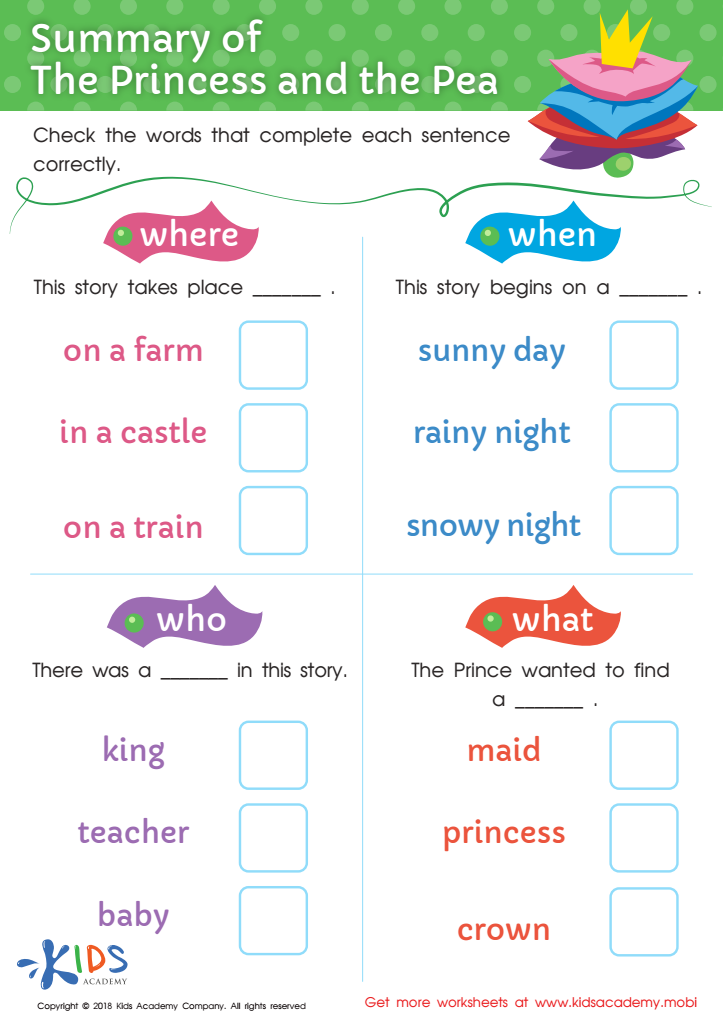

The Summary of the Princess and the Pea Worksheet
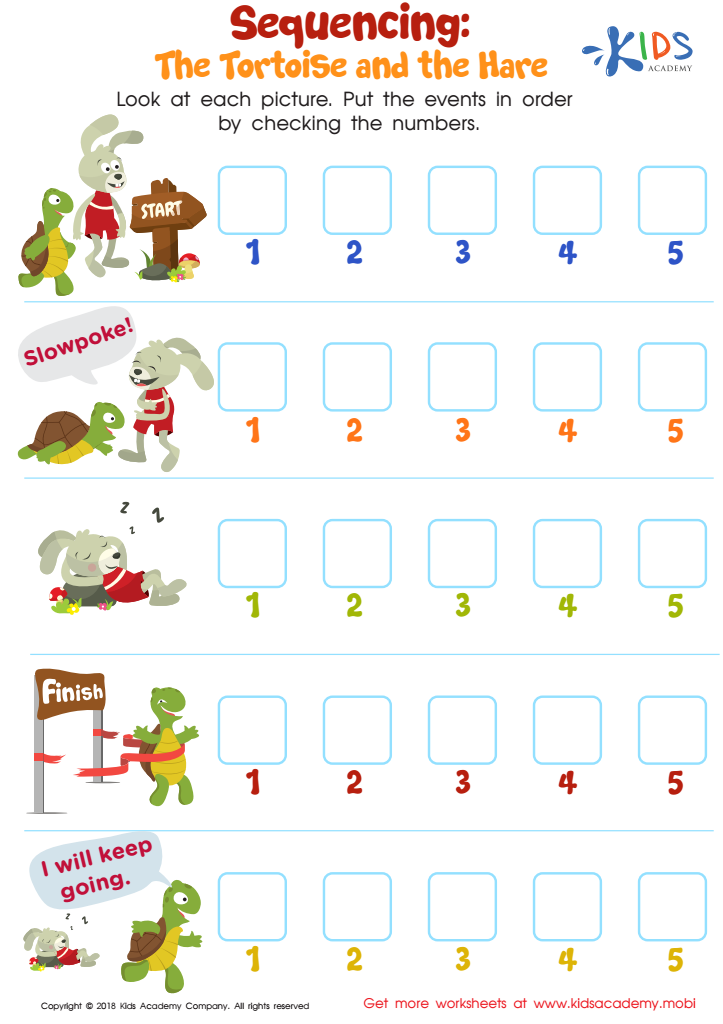

Sequencing: The Tortoise and the Hare Worksheet
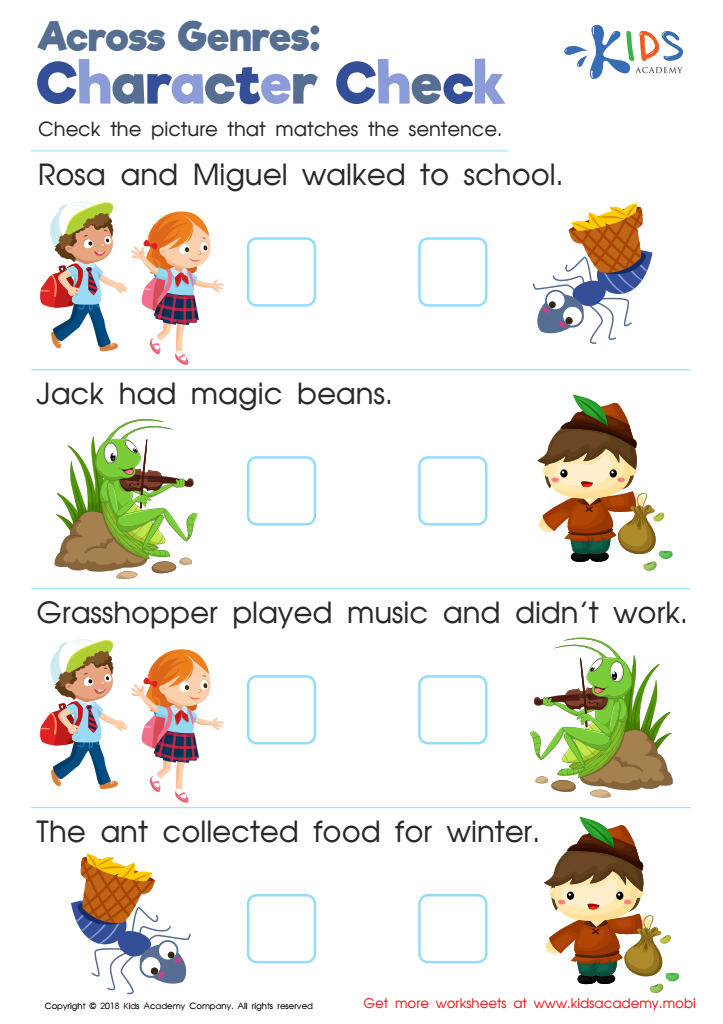

Across Genres: Character Check Worksheet
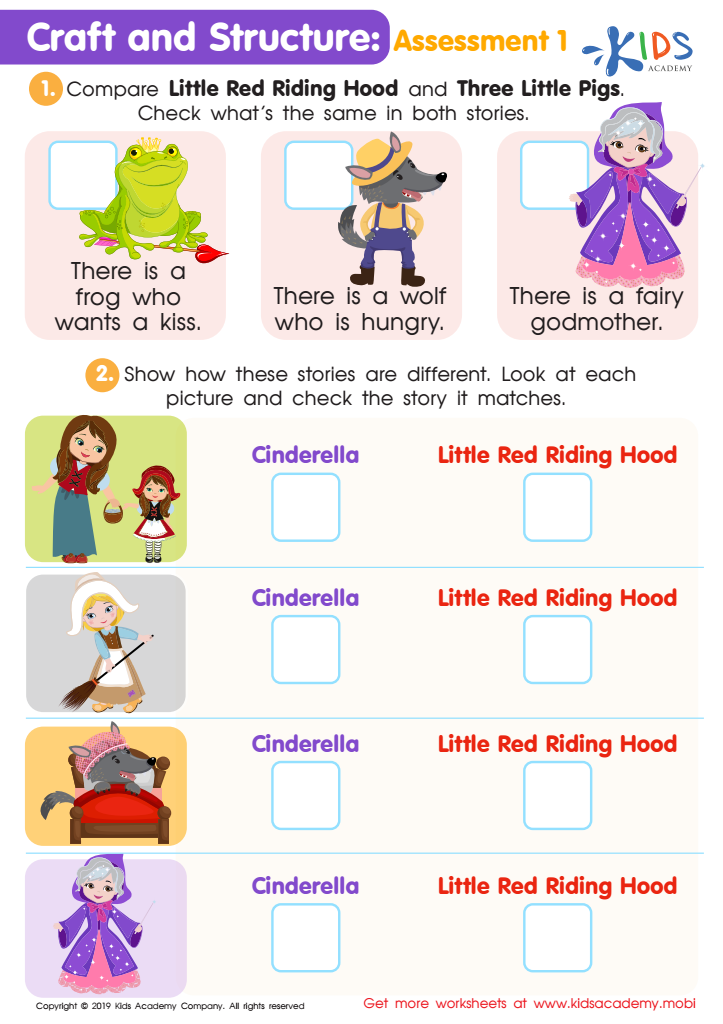

Craft and Structure: Assessment 1 Worksheet
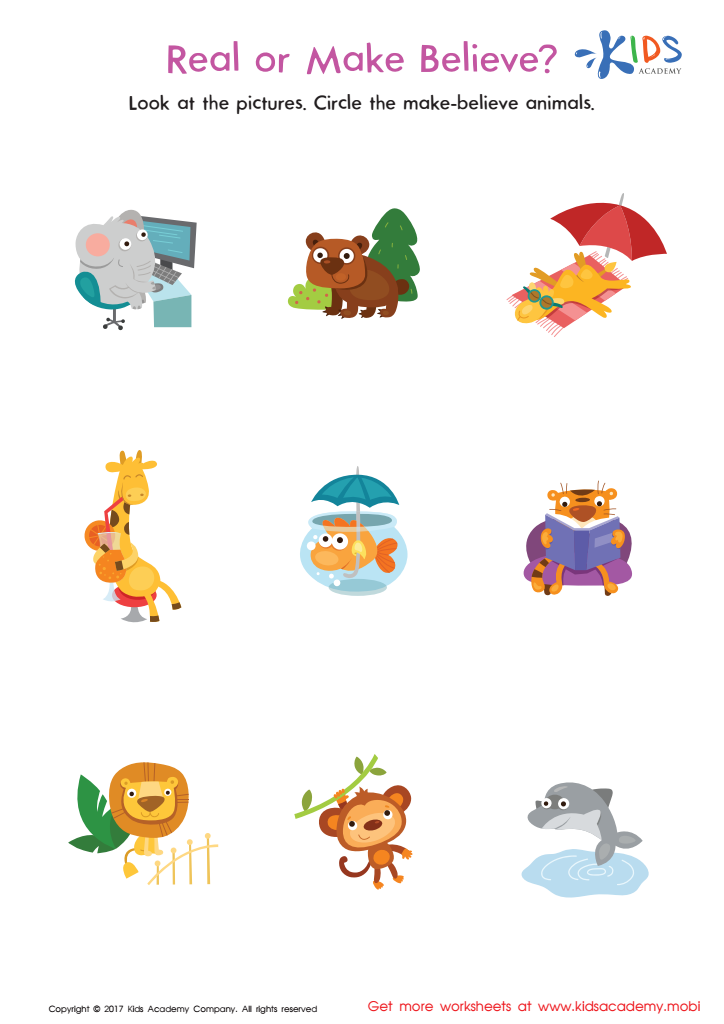

Fact or Make Believe Worksheet
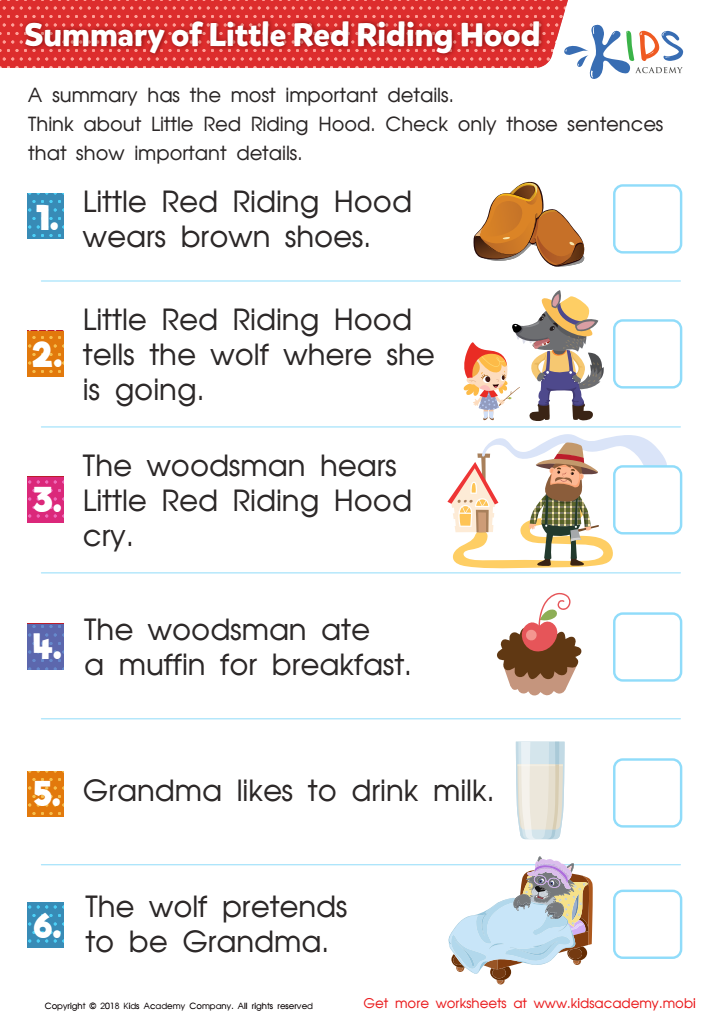

Summary of Little Red Riding Hood Worksheet
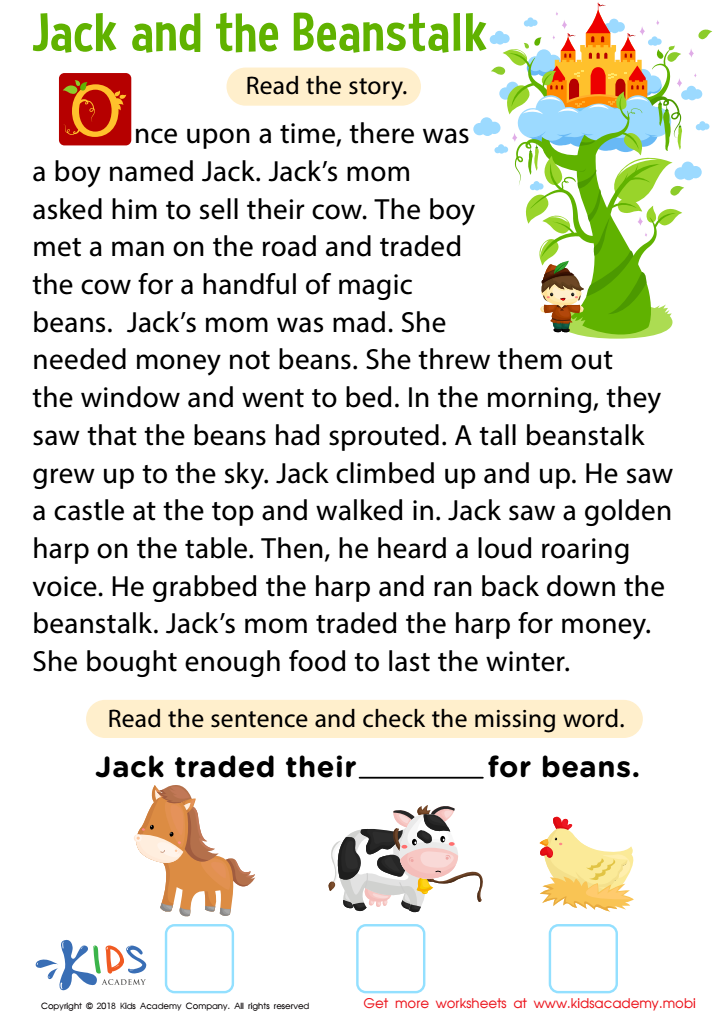

Jack and Beanstalk Worksheet
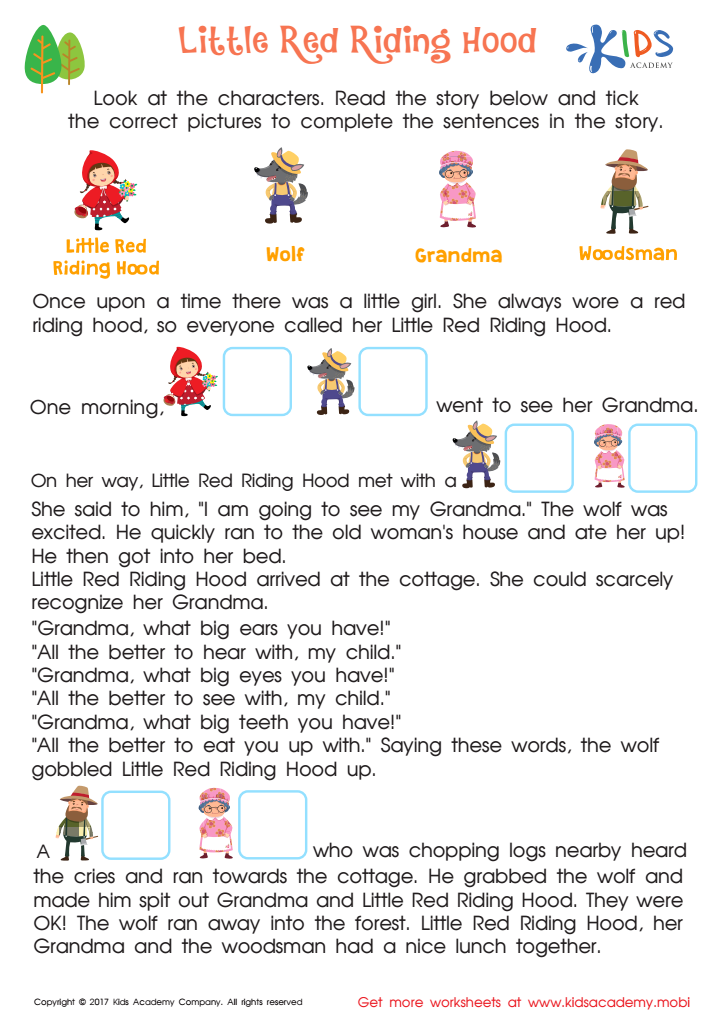

Little Red Riding Hood Printable
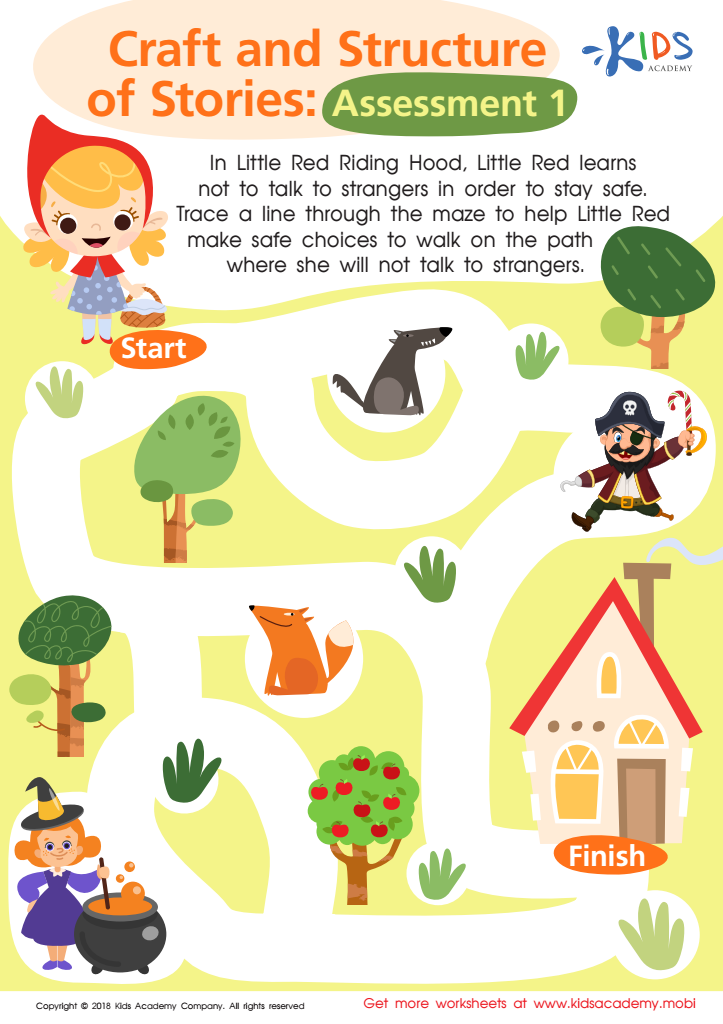

Craft and Structure of Stories: Assessment 1 Worksheet
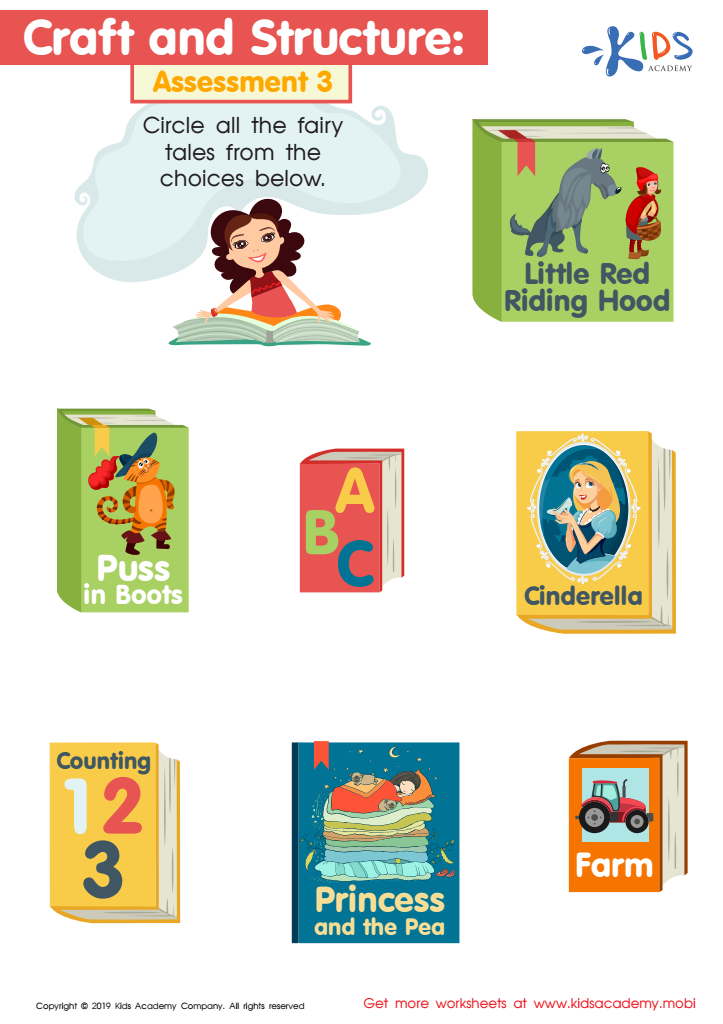

Craft and Structure: Assessment 3 Worksheet
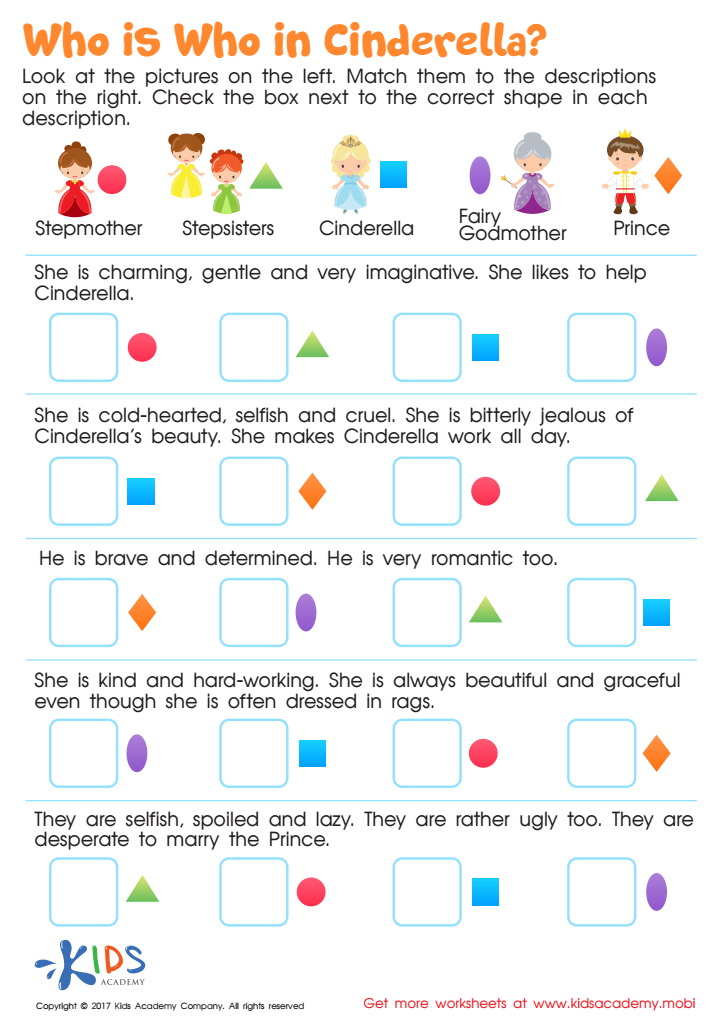

Cinderella Comprehension Worksheet
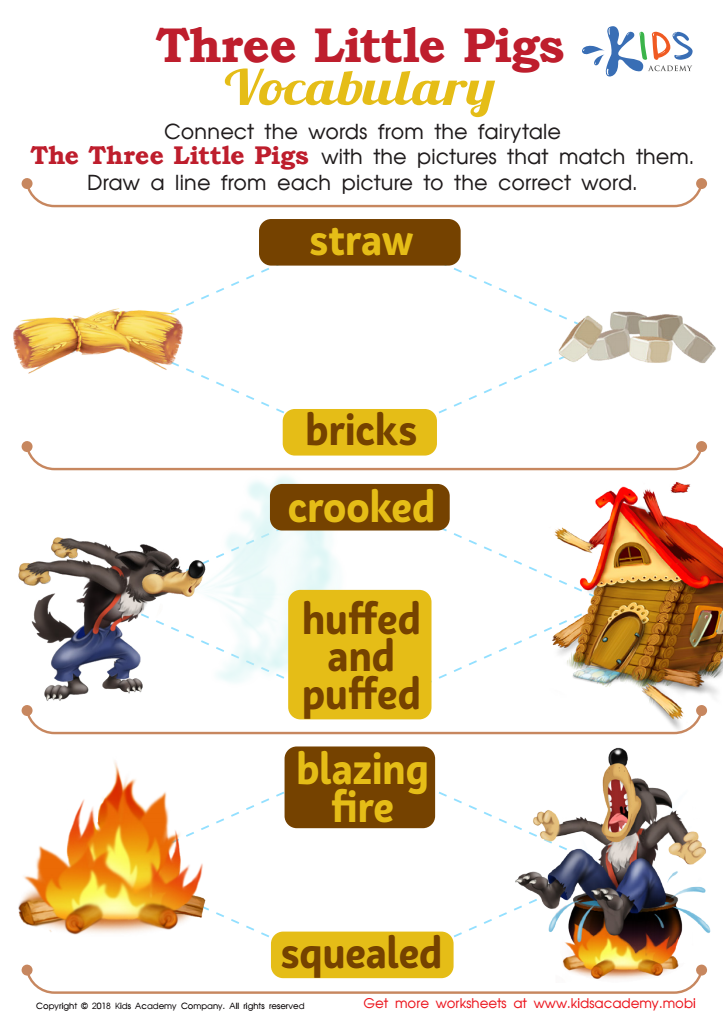

Three Little Pigs Vocabulary Worksheet
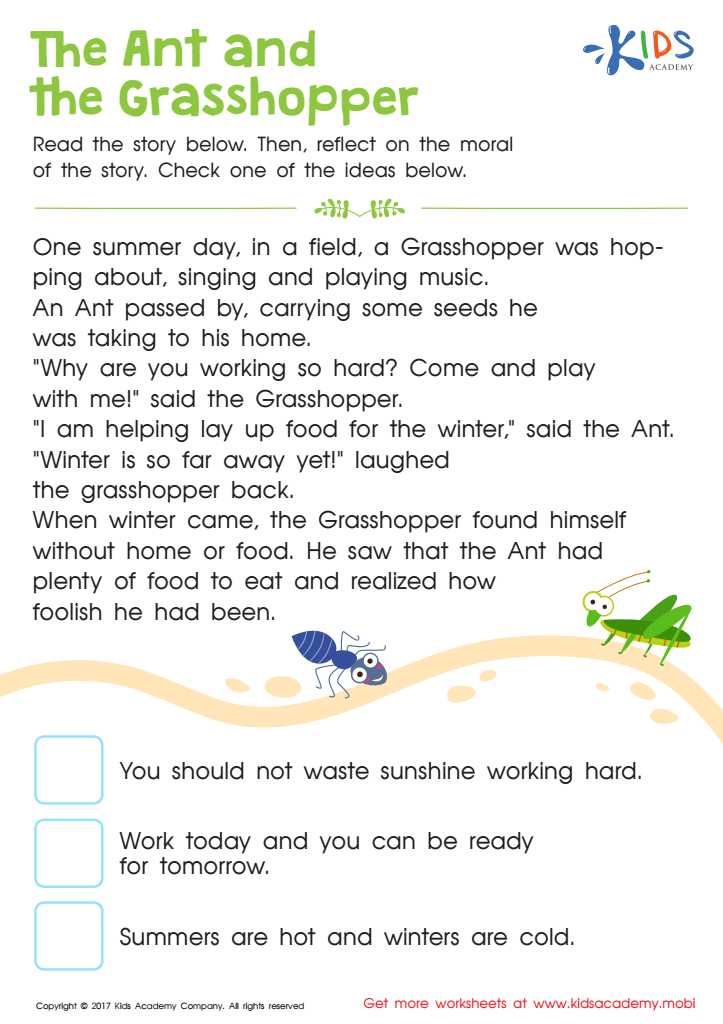

The Ant and The Grasshopper Printable
Fairy tale activities for children aged 3-7 are essential for fostering literacy skills, creativity, and social-emotional development. Engaging young learners with these magical stories introduces them to fundamental concepts of narrative structure—beginning, middle, and end—which enhances their understanding of storytelling and improves their reading comprehension skills.
These activities spark imagination and creativity as children immerse themselves in enchanting worlds, encouraging them to visualize and express their thoughts through art, storytelling, or role-play. This imaginative engagement not only broadens their vocabulary but also nurtures their critical thinking as they explore moral lessons embedded in fairy tales.
Moreover, fairy tales often present themes like friendship, bravery, and kindness, promoting positive social-emotional learning. Discussing these themes helps children navigate their feelings and encourages empathy, respect, and the understanding of diverse perspectives.
Furthermore, fairy tale activities can create a strong bond between parents, caregivers, and teachers, sparking meaningful conversations and co-learning experiences. In fostering an environment where children explore narrative and emotions, fairy tale activities become valuable tools in developing well-rounded, emotionally intelligent individuals equipped for future challenges. Hence, both parents and teachers should prioritize these enriching activities in early educational settings.

 Assign to My Students
Assign to My Students
















